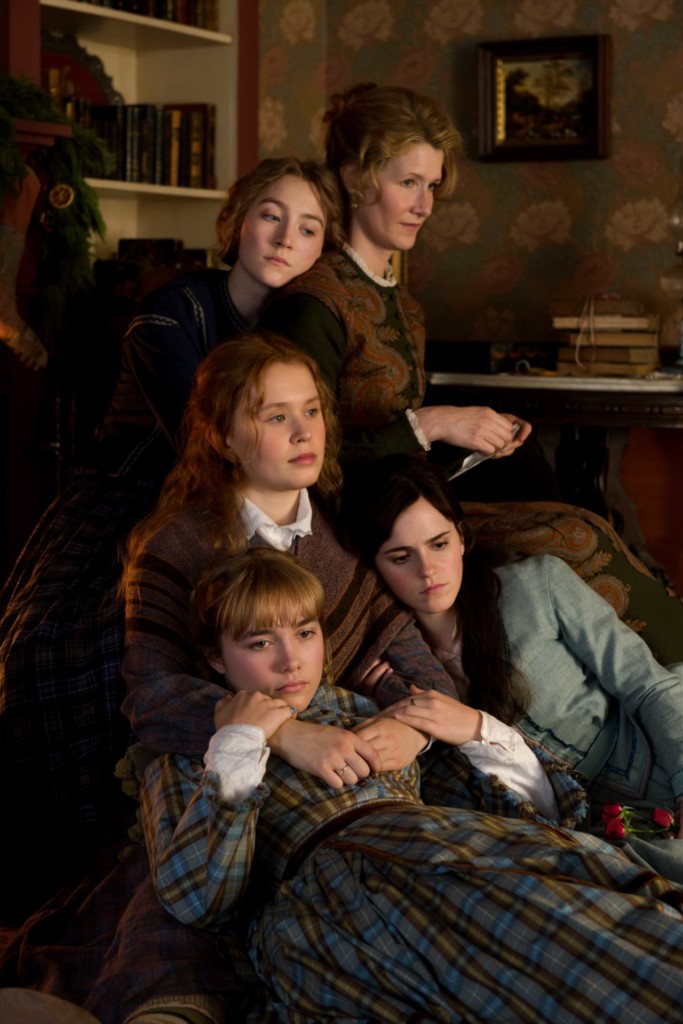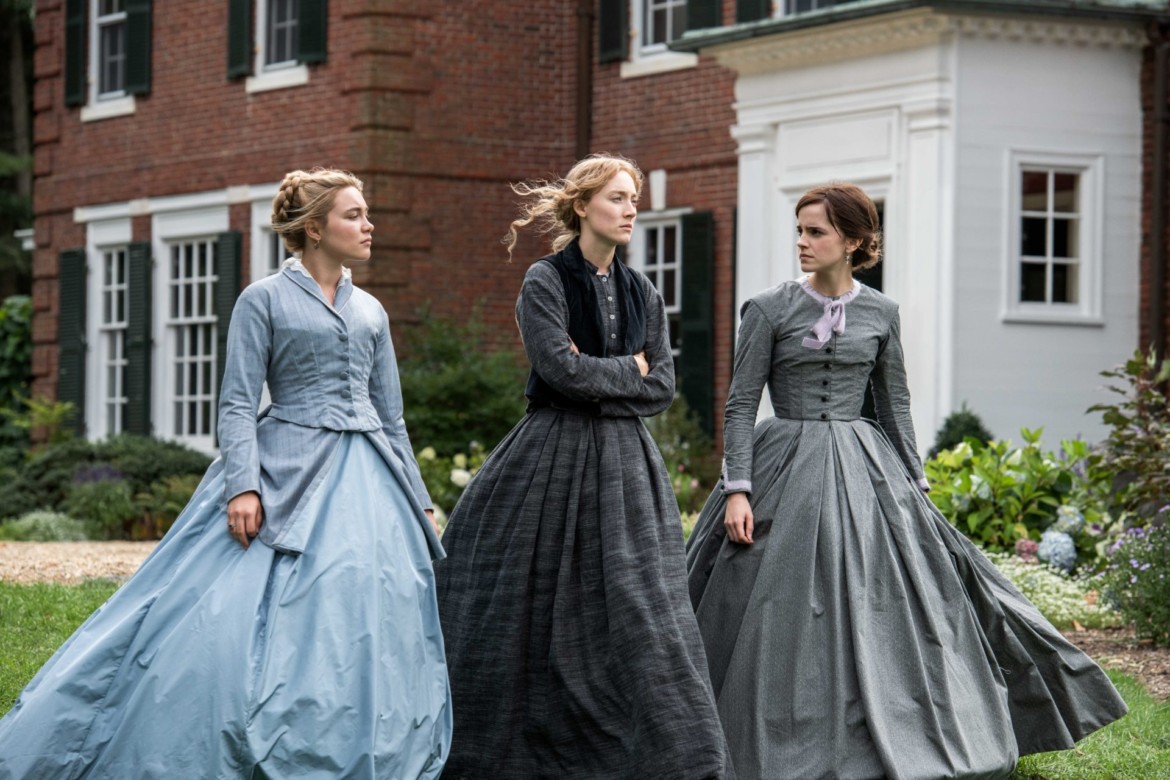By Kirsten Coachman
Even if you already know the story of Louisa May Alcott’s “Little Women,” you’ve certainly never experienced it being told this way. Oscar-nominated director and screenwriter Greta Gerwig has painstakingly crafted a new film adaptation of Alcott’s classic novel, which for many has served as both a rite of passage and required reading over the years, and breathes new life into the story of the March sisters—Jo (Saoirse Ronan), Meg (Emma Watson), Beth (Eliza Scanlen), and Amy (Florence Pugh).
In an intriguing twist on the original tale, the film opens with Jo in New York in the fall of 1868 pursuing her dreams of being a writer, selling one of her stories to a local publisher on behalf of “a friend.” Additionally to help support her family, she also earns her keep homeschooling young children at a boarding house. Amy is in Paris with Aunt March (Meryl Streep), where she runs into family friend Theodore “Laurie” Laurence (Timothée Chalamet); Meg is married to Laurie’s former tutor, John Brooke (James Norton), and is raising their family; and Beth, the quiet, but ever-passionate musician of the March family, continues to remain at home in Concord, Massachusetts, with Marmee (Laura Dern), the loving and selfless matriarch.

As the film interweaves between the present and memories of the past (starting in the winter of 1861), Gerwig explores the connections between the sisters and the indelible impact they had on one another, as well as what it meant to be young women in that time period, from familial expectations to the pursuit of their creative passions and love. Gerwig has taken these well-known characters and made them feel even more human, flaws and all. And for one sister in particular, she painted her in a new light, being Amy March.
Previous on-screen iterations of Amy have come off as merely childish and somewhat entitled, however Gerwig has written her in a manner that is refreshingly matter-of-fact, even when committing one of the most heinous offenses: burning Jo’s novel out of jealousy. It remains a jaw-dropping moment, but Pugh plays it with succinct ownership. Her directness evolves from being a child that emotionally reacts to a young woman that knows what she wants from life—keenly aware of how societal limitations come into play—but refuses to settle. Pugh is dynamic, showcasing versatility in how she portrays Amy as a strong-willed, sophisticated young woman and the young girl vying to keep up with her older sisters.
That said, “Little Women” is very much Ronan’s film. As Jo, Ronan brings the fiercely beloved heroine’s intrepid and imaginative spirit to life on screen, whether performing a play she wrote while burning the midnight oil with her sisters, dancing with Laurie outside a holiday gathering, or trying to convince Meg that she’ll get bored of being married. But there are two sides to every coin, and in a scene where Jo shares with Marmee in the family’s attic her frustrations about the traditional expectations of women, Ronan’s performance hits a new stride as she movingly reveals how lonely her character feels in a brief, but poignant monologue. The moment is further emotionally punctuated by Marmee’s quiet response and the shared understanding it elicits between mother and daughter.
Even though Jo has no interest in being married, she values her friendship with Laurie tremendously. Ronan and Chalamet seem almost destined to be reunited, as they first shared the screen in Gerwig’s 2017 directorial debut, “Lady Bird.” Once again, their on-screen chemistry is a highlight as their characters have a rare energy about them—one born out of equal respect and genuine care for one another. But when Jo ultimately turns Laurie down as a romantic prospect, it still pulls on empathetic heartstrings, not because they don’t wind up together, but because it marks a change in their relationship as they head down separate paths into adulthood.
Some may balk at “Little Women,” but to miss out on this film would be a mistake. The story of the March sisters is one that continues to be one of relevance even in 2019. Although the nonlinear storytelling occasionally loses its footing, the strong performances from the film’s standout ensemble cast will most certainly keep audiences drawn in. Overall, Gerwig’s adaptation is a delight and proves that it is certainly worthwhile for every generation to have its own “Little Women” to enjoy and reflect on.
“Little Women” is now playing in theaters.
